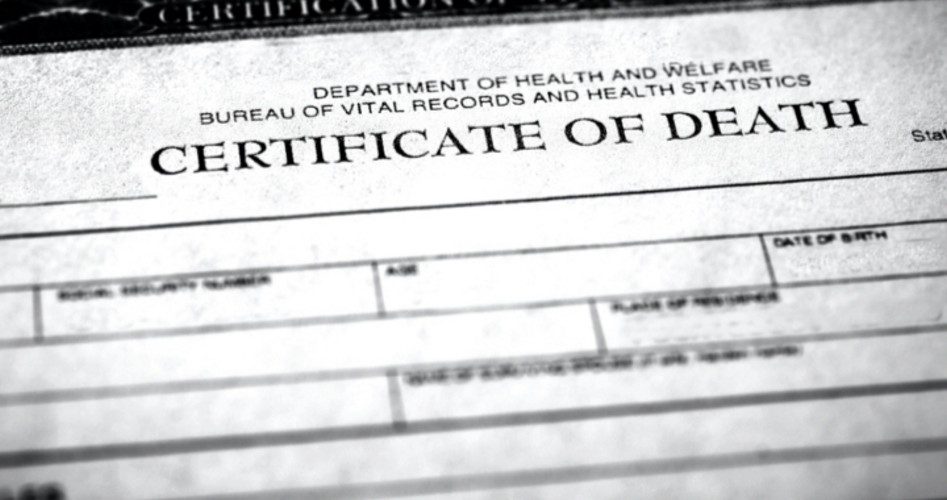
A disabled man with COVID-19 was left to die by a Texas hospital because the state deemed his “quality of life” not worth preserving.
Michael Hickson, 46, was in St. David’s South Austin Medical Center, suffering from COVID-19 and pneumonia, which he caught from a staff member at the nursing home where he was living as a result of his disabilities. In 2017, he had a heart attack while driving his wife, Melissa, to work; when CPR was administered to him, his brain suffered from oxygen deprivation, making him a quadriplegic.
According to Texas Right to Life, “Michael was conscious and alert but could not communicate verbally. He responded to jokes, shook his head, and puckered his lips on a FaceTime call when Melissa requested a kiss. Melissa asked if she could pray with her husband and their children, to which he nodded ‘yes.’”
Nevertheless, after just a few days, physicians at St. David’s decided treating Michael would be “futile” and wanted to let him die because, even if he survived, he would have a poor “quality of life,” according to a recorded telephone conversation between Melissa and one of the doctors.
“So as of right now, his quality of life — he doesn’t have much of one,” the doctor told Melissa.
“What do you mean?” she asked. “Because he’s paralyzed with a brain injury, he doesn’t have quality of life?”
“Correct,” replied the doctor.
“Who gets to make that decision whether somebody’s quality of life, if they have a disability, that their quality of life is not good?” she inquired.
The doctor said that while it wasn’t his decision to make, it ultimately came down to “will [treatment] improve [Michael’s] quality of life, and the answer is no.”
“Why wouldn’t it?” Melissa shot back. “Being able to live isn’t improving the quality of life?”
The doctor went on to explain that the hospital had experienced many deaths from COVID-19 and that he knew of only three patients who had survived, all of whom were young and otherwise healthy. “However,” he continued, “[Michael’s] quality of life is different from theirs. They were walking and talking people.”
“At this point, we are going to do what we feel is best for him along with the state and this is what we decided,” said the doctor.
“So the fact that you are killing someone doesn’t make sense in your mind?” Melissa asked.
“We,” the doctor replied, “don’t think of it as killing.”
Later, he asserted, “This is the decision between the medical community and the state.”
“And the state,” said Melissa. “Forget about his wife and his family and his five kids.”
That is exactly what the hospital did. While Melissa was battling another family member in court over who would be Michael’s permanent guardian, “a judge named an Austin-area organization called Family Eldercare as temporary guardian over Michael,” wrote Texas Right to Life. “Family Eldercare granted the doctor’s orders to not treat Michael and instead place him in hospice.”
On June 11, Michael Hickson died, a victim not so much of COVID-19 but of a system that considers disabled individuals less valuable than “walking and talking people.”
St. David’s issued a statement on the matter Saturday: “The loss of life is tragic under any circumstances. In Mr. Hickson’s situation, his court-appointed guardian (who was granted decision-making authority in place of his spouse) made the decision in collaboration with the medical team to discontinue invasive care. This is always a difficult decision for all involved. We extend our deepest sympathies to Mr. Hickson’s family and loved ones and to all who are grieving his loss.”
The next day, members of disability-rights group Americans Disabled for Attendant Programs Today (ADAPT) of Texas protested outside St. David’s. One protester’s sign read “DISABLED NOT DISPOSABLE.” Another’s called for “JUSTICE [for] MICHEAL[sic] HICKSON.”
“I’m struggling to understand how and why this could ever happen. I lost my best friend, my better half, the other half of my heart,” Melissa told Texas Right to Life. “I was stripped of my rights as a wife and left helplessly watching my husband be executed…. I have no other words to express how I feel today except hurt, angry, and frustrated.”
Photo: eric1513 / iStock / Getty Images Plus
Michael Tennant is a freelance writer and regular contributor to The New American.



